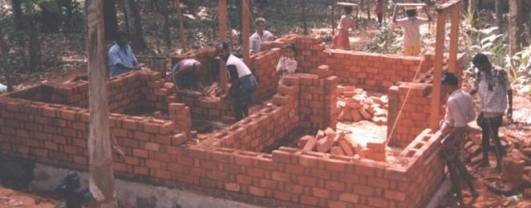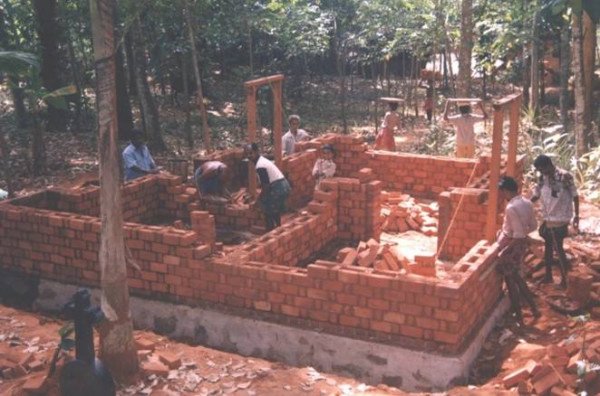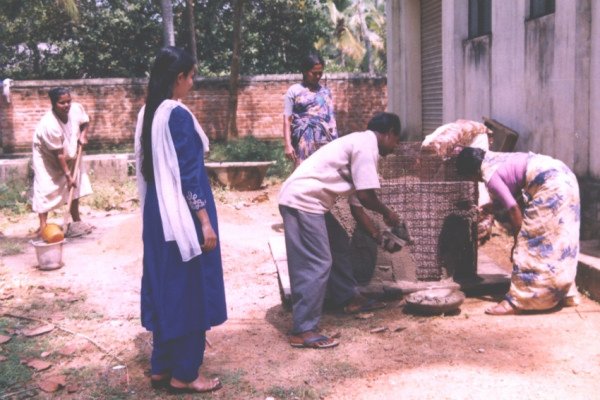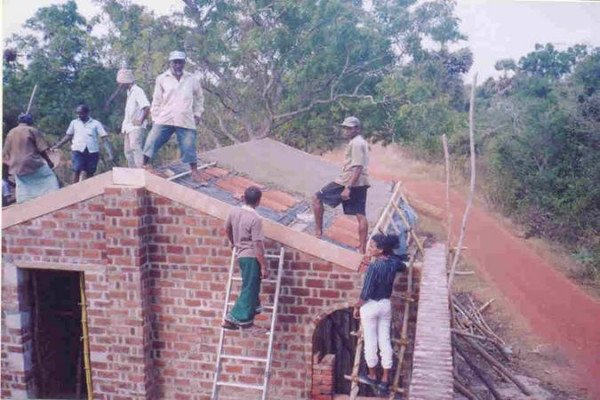The Palmyrah Workers’ Development Society (PWDS) started a programme to help Palmyrah worker families build safe, fire-resistant homes while improving their income. Since 1990, over 11,000 houses have been built through a community “mutual help” system, where families support each other in construction and decision-making.
Palmyrah workers live in rural Tamil Nadu, India, making sweets from the sap of Palmyrah trees. Their small, thatched huts are unsafe—fire, smoke, leaks, and overcrowding are common, causing accidents, respiratory illness, and poor living conditions. A PWDS survey in 1987 found that 80% of workers in Kanyakumari district lived in unsafe housing and urgently needed affordable homes and credit.
The programme combines community effort, micro-credit, and government subsidies. Families collect materials, help with their own and neighbours’ construction, and take housing loans through a community finance group, the Indian Association for Savings and Credit (IASC). Loans are repaid almost fully, supported by collective accountability. Community groups, called mantrams, decide who receives homes first, manage savings, and help resolve local issues.
The new homes use low-cost, fireproof materials and include kitchens with chimneys and toilets, improving health and reducing open defecation. Training in construction has created new livelihood opportunities, and youth gain skills in masonry and community management.
Environmentally, the programme reduces timber use and improves sanitation. Socially, it has raised self-esteem, improved marriage prospects, and built strong local institutions. Over time, it has grown into a self-sustaining movement, supported by partnerships with financial institutions and Non-Governmental Organisations.
By mixing traditional knowledge with modern methods, the project shows that even low-income rural families can achieve safe housing, stronger communities, and better futures when given access to affordable credit and the chance to lead their own development.
Palmyrah Workers Development Society









